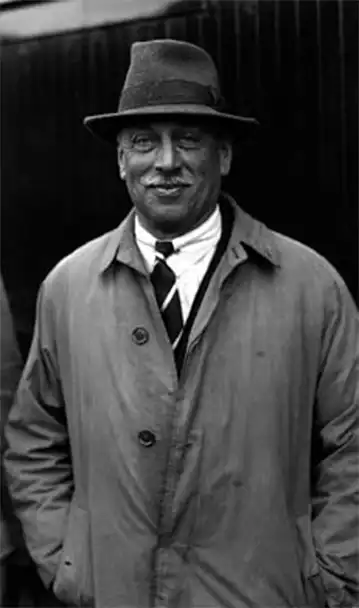Our Mission & Goal
Our aim at The People’s Credit is to reawaken interest in the philosophical, political and economic ideas of Clifford Hugh Douglas (1879-1952). Douglas was an engineer by trade, but it was his insights into the nature and purpose of human associations and the economic implications of these ideas that became broadly known in the English-speaking world as the Social Credit Movement, especially during the inter-war years.
Those of us who understand the importance of Douglas’ contribution feel obligated to do what we can to keep the message alive and spread it amongst the community as widely as we are able. We don’t believe that any meaningful solution to our economic discontents will be found without consideration of these insights.

Indeed, our economic problems seem to become ever more acute. Debt is at absurd levels with no hope of relief. Despite hundreds of years of technical progress in labor-saving innovation we are working longer than ever with many of less convinced that the work we do has any sensible purpose. Taxation is progressively heavier at one end, and inflation chews out our buying power at the other.
The quality of production, including food and housing, is deteriorating along with the health and spiritual fortitude of the general population. Over it all our political and information systems have become merely the means of quieting a bewildered herd while its wealth and power are transferred out of its reach. We see all this decline as avoidable, and we want it to stop.
We work largely voluntarily; we are self-funded and have no political or conflicting business affiliations. In the main our politics is conservative and our creed is Christian, but we see nothing in our message that would discourage anyone whose aspirations are for a healthier, more stable and freer society.
The Life & Legacy of C.H. Douglas
The late Clifford Hugh Douglas, M.I.Mech.E., M.I.E.E., consulting engineer, economist, author, and founder of the Social Credit Movement, was born in 1879 and died an 1952. Among other posts which he held in his earlier years were those of engineer with the Canadian General Electric company, Peterborough, Canada; Assistant Engineer, Lachine Rapids Hydraulic Construction, Deputy Chief Electrical Engineer, Buenos Aires and Pacific Railway; Chief Engineer and Manager in India British Westinghouse Company; Assistant Superintendent, Royal Aircraft Factory Farnborough (England). During the First World War he was a Major in the Royal Flying Corps and later in the R.A.F. (Reserve).

After retiring from his engineering career, he and his wife ran a small yacht-building yard on Southampton Water for several years. The combination of beauty with functional efficiency in a successfully designed racing yacht had a special appeal for him. When he lived in an old water mill in Hampshire he used the water wheel to turn a dynamo which lit and warmed the house as well as providing power for lathes and other tools.
Later, when he moved to Scotland, many of his friends and followers remember helping to build his small hydro-electric power house, sited on the local burn which ran through his land. Since decentralisation of economic power was of the essence of his teaching, it should be put on record that he practised what he preached (Dobbs, G. 1975. Who Was C.H. Douglas?)
Douglas’ contribution to society was to bring a realistic, technical analysis to the fields of economics and finance. From his first public utterance in 1918 with The Delusion of Super Production, Douglas sought to explain, and propose solutions to, what he discovered to be a number of defects with the operation of the economic and financial systems. He explained how the financial system is basically a system of accounting which, when functioning as it should, aligns authentic consumer demand with the supply of goods and services.
He pointed out that conventional financial arrangements failed to provide the consumer with sufficient money to buy the goods being produced by industrial methods, and therefore failed in its role as an instrument for accounting the real economic situation.
The underlying reason for this failure is that as the production system becomes increasingly machine driven it displaces human labour and, in displacing labour, makes proportionally less money available to consumers (as workers) to cover total costs, which are the lower limit of the price of goods. This disparity is the fundamental cause of inflation which is merely the tendency in modern economies for prices to outrun consumer buying power.
Douglas’ solution was quite simple. He proposed the buying power of the community be augmented by what he described as a national dividend in the form of debt free credit to all citizens sufficient to bridge the gap between wages, salaries and profits and the prices of goods for sale. But there was a catch. The money supply is the private interest of banks who only ever lend to the community. The idea of a national dividend not accompanied by debt would break up the monopoly of credit which is the exorbitant privilege of the financial system. No solution was possible while the banks maintained their claim to ownership of the community’s credit.
Douglas determined that the financial system’s control of the money supply constituted illegitimate government and, therefore, was profoundly undemocratic. He believed the purpose of the economy was to produce goods and services with a minimum of labour and resource-expenditure, yet the financial system required full employment, not for the sake of the production, but to distribute incomes. He also believed that the power of banks to create the money supply out of nothing as debt was a literal claim by the financial system to the ownership of the community and its assets. Furthermore, he decerned a dangerous trend whereby decision-making control was progressively ceded to financial powers, away from the individual.
Over time Douglas elaborated a profound philosophy of personal freedom and responsibility. His economic proposals are derived from this philosophy and aim to place the advantages of collective action and technology at the disposal of the individual, rather than these things being the means of subjugating him. He abhorred the domination of the individual by the group and regarded it as the prelude to social breakdown and collapse. We seem to be in the latter stages of this process.
What ensued was the Social Credit movement. A world-wide campaign of activists, writers and speakers committed to educating the public about what came to be known as “The Douglas Revelations.”